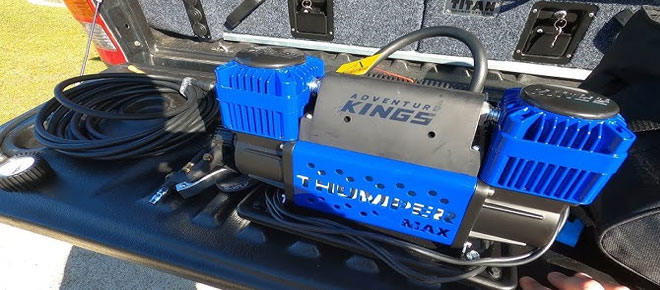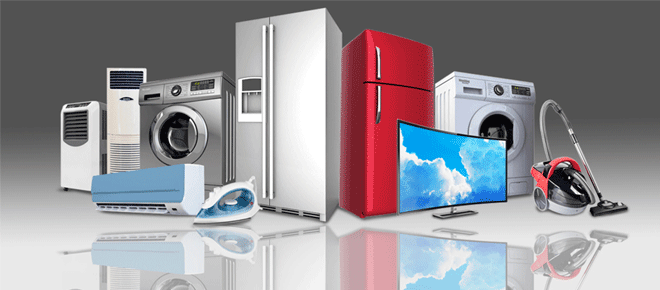The Ultimate Guide to Choosing the Best Air Compressor for Your Needs

Whether you're a weekend DIYer or a seasoned contractor, an air compressor is a crucial tool for working on home projects. It can make everything from inflating tires to powering nail guns easier.
But with product descriptions mentioning CFM, SCFM, PSI, and other measurements, it can be hard to decide which model is right for you.
Power
Air compressors are powerful pieces of equipment that can be used for a wide variety of purposes, from inflating car tires to powering pneumatic tools. They work by using atmospheric pressure to suck in air, compress it and then store it in a tank.
They can be powered by either electricity or gas, with the latter being more popular among professional users. They can also be cooled by using water to help prevent overheating. Air compressors are easy to use and require low maintenance, making them an ideal choice for many workplace applications.
However, they should always be used in conjunction with safety precautions, as they can generate a lot of heat and may be dangerous if not properly maintained. For example, air pressure in a compressor can reach up to 100 PSI or more, which is high enough to cause injury or even death if someone breathes it in for too long.
The type of air compressor that you need depends on your requirements. Choosing the right air compressor will help you achieve several benefits, including lower energy costs and less wear and tear on your tools. In addition to this, a high-quality air compressor can contribute to larger environmental goals within your business, improving your reputation among environmentally conscious consumers. The efficiency of an air compressor can be improved by ensuring that the system isn’t idling too often and maintaining the proper pressure throughout the operation.
Looking to save money on owning a high-quality air compressor One option is to check out Electronic Promo Code.
Noise
Air compressors are some of the most powerful machines in any shop, but they can also be some of the loudest. Without being specially designed to be quiet, they can produce noise levels up to 85 decibels — that’s higher than the average phone ringtone, and nearly deafening. This kind of noise can lead to workplace injuries and even hearing loss, so workers need all the help they can get to reduce their exposure.
There are several reasons why an air compressor might be loud, including its design, how it is used, and where it is positioned. Almost all machines make some noise, but a cheap, budget-priced unit will be noisier than a premium model. This is because of cost-saving measures like thinner build materials, minimal soundproofing, and loose screws and bolts that amplify vibrations and sounds.
Regardless of the type of compressor you choose, its mechanical properties play a large role in how much noise it will make. For example, reciprocating pumps have many moving parts that create friction. This causes more noise than scroll or rotary screw models, which have as few as one moving part and are near-silent by design. Intake and exhaust noises are another major source of air compressor noise. The intake valve is a noisy component, and the compressor’s exhaust pipe releases air and its byproducts into the environment. All of this can be mitigated with the right soundproofing and acoustic materials. If you looking for an air compressor you can find the perfect choice for your needs from online retailers like the 4wd Supacentre Coupon which has an available variety of sizes and types.
CFM
The CFM of an air compressor refers to how many cubic feet of air the compressor can produce per minute at a given pressure level. It’s important to know your equipment’s CFM requirements, as the CFM and PSI of your air compressor will determine the power that it can provide for your tools.
Several factors can affect an air compressor’s rated CFM. For one, the temperature of the air can affect how much it expands and contracts. This can cause the air compressor to produce less air than expected. Another factor is the frequency of use. If you’re going to be using your air compressor regularly, it’s important to invest in a model with a higher CFM rating.
Another significant factor to take into account is tank size. Consumer-grade air compressors have small tanks and are ideal for home use. They can be used to inflate tires, and sports equipment like basketballs and air mattresses. Professional-grade air compressors have larger tanks and can be used to power a wide range of tools, including pneumatic hammers, nailers, and drills.
Air compressors can also be loud, which can interfere with your work and the privacy of others. If you plan to use an air compressor at your house, consider investing in a sound blanket to dampen the noise it produces. You should also try to limit the hours you operate your air compressor to when no one else is around so that the sound doesn’t disturb anyone.
Duty Cycle
A compressor is rated for a specific CFM at a specific pressure (PSI). Its duty cycle indicates how long the compressor can run continuously or intermittently before needing to rest.
For example, if the air compressor is rated for 100 PSI at 200 CFM and its duty cycle is 80%, it will deliver pressurized air for 8 minutes out of 10 total cycles. This means it must rest for 4 minutes each time, which can be done by shutting the compressor off and allowing it to cool down or recharge the battery.
The compressor can also be set to operate at a higher or lower duty cycle by changing its cut-in and/or cut-out pressures. For instance, dropping the cut-in pressure will allow the compressor to make more air before it needs to rest while raising the cut-out pressure will force the compressor to shut off more quickly.
Understanding how an air compressor operates can help you determine which model is right for your needs. Although psi, CFM, and duty cycle can be confusing words with many acronyms, they are important to know for comparing products. By knowing what your needs are and which product can meet them, you can avoid making a costly mistake. Whether you're using the air compressor to pump up tires or for more demanding tasks, an appropriate duty cycle is vital to prevent wear and tear on your equipment and increase its lifespan. If you looking for the best quality air compressors All Over Promo Code is the best option for you.
Oil Type
Air compressors are hard-working machines, and like all working machines, they need oil to stay lubricated so they run smoothly over time. Unlike the motor oil used in your car, air compressor oil is specially formulated for optimal performance, efficiency, and safety.
The type of oil you use in your air compressor depends on how often you will be using it. For less demanding uses at home, standard or mineral oil is a cost-effective choice for day-to-day operation. For more frequent or professional use, a synthetic blend offers better wear protection and extended lifespan.
In addition to reducing noise, the right oil can help prevent valve carbon buildup in your air compressor. It can also reduce the amount of heat generated during operations, which helps to prolong your compressor’s lifespan and efficiency.
Many people are tempted to use standard or motor oil in their air compressors because it’s more affordable, but this can lead to damage and shorter machine life. The best solution is to purchase a bottle of compressor oil that’s specifically designed for your machine. It's a wise investment that will yield benefits in the long run. It will make your compressor run more quietly, help it to last longer, and help you avoid costly repairs down the line. An air compressor is a handy tool for many different applications in your garage, workshop, or business. Whether you’re inflating tires, operating pneumatic tools, or cleaning surfaces, the right air compressor can help you get the job done more efficiently.
Accessories
Adding the right accessories can improve a compressor's function and make it more efficient to use for your specific industry. These include air compressor hoses with compatible fittings and connectors that can fit a wide range of tools. These may be made of anodized materials or quick-connect options that allow you to switch on and off the hose in seconds. A portable compressor can also benefit from a gas generator to provide compressed air for unexpected power outages or maintain end-user applications on the go.
If you plan to use an air compressor for small jobs like inflating tires or cleaning off your garage, a smaller tank may be sufficient. However, if you're looking to perform larger installation or painting tasks that require pneumatic equipment, it's best to invest in a full-size model with a large gallon capacity and high PSI to ensure enough power for all your needs.
Professionals in every field use air compressors to streamline their operations and ensure that all jobs are done with the highest degree of precision and efficiency. By evaluating the key specifications that professionals look for in their compressors, you can make an informed decision to choose the perfect model to suit your particular requirements. For example, an air compressor with a built-in pressure gauge and an alarm system may help prevent overheating or other malfunctions that could be dangerous or frustrating for a DIYer to handle on their own.
Conclusion
Investing in the right air compressor can save you time and money in the long run. By choosing the best one for your needs, you can ensure efficiency, durability, and cost-effectiveness. And with the 4wd Supacentre Promo Codes, you can get the best air compressor at an even more affordable price. Don't hesitate to make the investment and enjoy the benefits for years to come.








